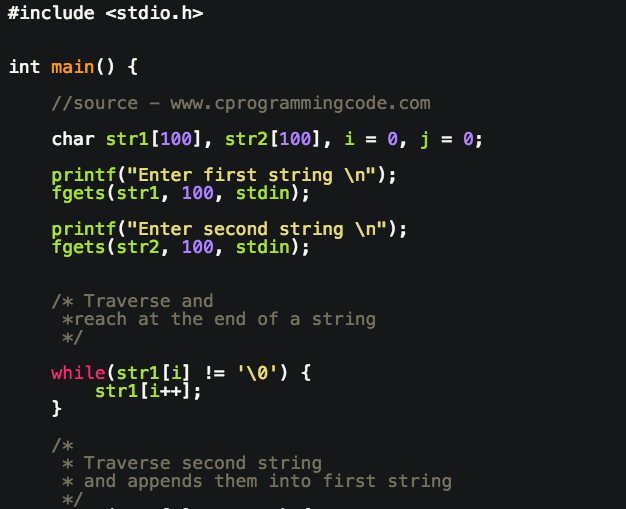

String to codepoints code#
“ CharacterEscape” explains how various escape sequences are translated to characters (roughly: either code units or code points). In those patterns, lead and trail surrogates are also grouped to help with UTF-16 decoding. Unicode escapes for code points beyond 16 bits: \u" is only allowed in Unicode patterns.There are three areas in which ECMAScript 6 has improved support for Unicode: This function is the inverse operation of unicodecodepointstostring () function. Escape sequences in the ES6 specĢ6.1 Unicode is better supported in ES6 #

“ Unicode and JavaScript” in “Speaking JavaScript”.

For a general introduction to Unicode, read Chap. fineProperty(String.This chapter explains the improved support for Unicode that ECMAScript 6 brings. It returns a Sequence that decodes UTF-8 and iterates over the. Note however that “the number of code points” is not the same thing as “the actual number of characters” for what a human usually perceives as “character”. If you want to work with a string as a sequence numeric code points, call the codePoints getter. > I expect to be able to add an attribute to String.prototype that returns the number of codePoints of the string to reflect the actual number of characters instead of the code unit. The index of the first character is 0, the second character is 1, and so on. I sincerely hope that you can accept myĭesc: This is a digitally signed message part. The codePointAt() method returns the Unicode value of the character at the specified index in a string. > I believe that most developers need such a method and property to get the > example: can return the actual number of > String.prototype that returns the value of the codePoint of the string. > I want the ECMA organization to be able to add a property or method to dePointCount(): The method returns the number of > String.length(): The method returns the number of characters in char in the > The String class in the Java JVM uses UTF-16 encoding. > length to not match the actual number of characters in the string. > less commonly-used characters, so it's possible for the value returned by > represent the most common characters, but needs to use two code units for The index of the first character is 0, the second. > string format used by JavaScript, uses a single 16-bit code unit to The codePointAt() method returns the Unicode value of the character at the specified index in a string. > This property returns the number of code units in the string.

Unlike other dependencies on Java classes and interfaces, this one is impossible to emulate directly, because implements CharSequence, and there's no way we can make System.String on. > number of codePoints of the string to reflect the actual number of Yields each Unicode extended grapheme cluster in this string. CharSequence is a Java interface that we use very extensively, and there's no equivalent on. > I expect to be able to add an attribute to String.prototype that returns the On Thursday, Aug4:37:07 AM CEST fanerge wrote:
I sincerely hope that you can accept my proposal, thanks. The string length of e is 3, even though it is represented by the codepoints 223,8593,101,778 or the UTF-8 binary <<195,159,226,134,145,101,204,138>.I believe that most developers need such a method and property to get the number of codePoints in a string. For example: can return the actual number of codePoints instead of code unit. I want the ECMA organization to be able to add a property or method to String.prototype that returns the value of the codePoint of the string. dePointCount(): The method returns the number of codewords in the string. String.length(): The method returns the number of characters in char in the string The String class in the Java JVM uses UTF-16 encoding. unicodecodepointstostring ( values) Parameters Note This function receives up to 64 arguments. UTF-16, the string format used by JavaScript, uses a single 16-bit code unit to represent the most common characters, but needs to use two code units for less commonly-used characters, so it's possible for the value returned by length to not match the actual number of characters in the string. This property returns the number of code units in the string. I expect to be able to add an attribute to String.prototype that returns the number of codePoints of the string to reflect the actual number of characters instead of the code unit.


 0 kommentar(er)
0 kommentar(er)
